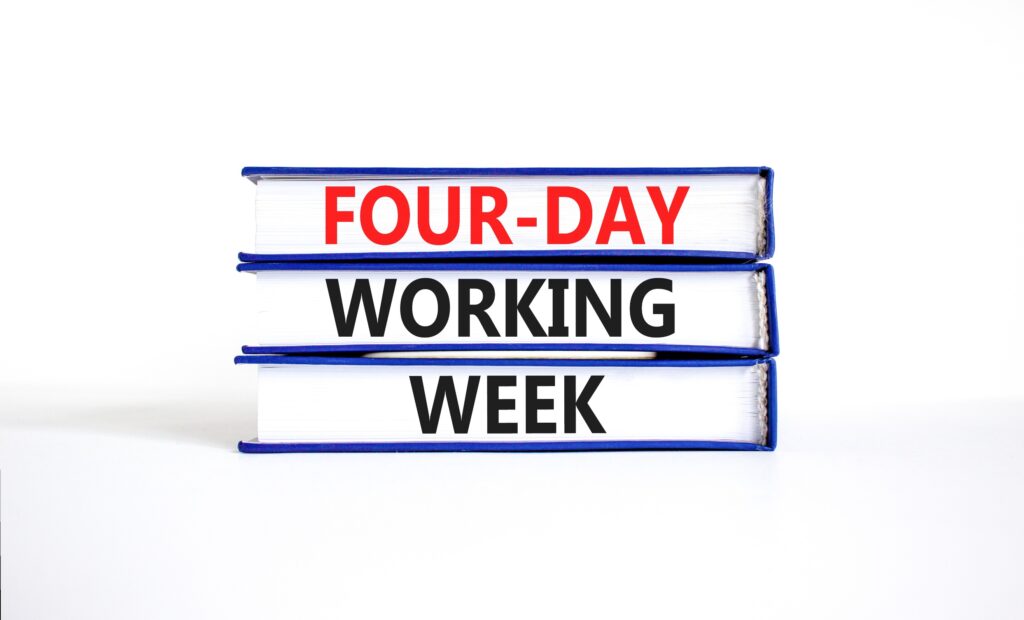Successful employment relationships key to remote work success

Employment Hero’s Co-Founder Ben Thompson urges organisations to prioritise trust and clear communication in global remote work.
Take a pay cut for remote work? No thanks, say employees in Australia

Besides a reluctance to earn less, some employees are also not convinced that they will benefit from working from home.
Your smartphone can reduce stress experienced at work

Tracking two groups of employees within one organisation, research has found that personal phone use helped reduce stress.
Australia considers four-day workweek trials for civil servants

The Australian government is exploring trials to implement the four-day workweek for civil servants, with a reduction model in the works for the trials.
Changing landscape of self-employment in Australia

Australia’s employment landscape has changed in the past decade with traditional employers declining and part-time self-employment on the rise.
How neurodiverse women can thrive in the workplace

Embracing workplace authenticity and flexibility for neurodiverse individuals fosters innovation, success, and a more inclusive environment.
Drop in remote work among employees in Australia

While more employees are working from the office, the rate of employees working from home is expected to remain steady.
Employers legally responsible for preventing sexual harassment at work

The Australian Human Rights Commission is now legally empowered to enforce rules to prevent sexual harassment in the workplace.
Salaried jobs fall in Australia between October and November

Statistics reveal that the number of payroll jobs between Australian states fell as temporary jobs created during the period end.
Workplaces in Australia urged to prioritise wellbeing

Organisations of varying sizes experience disparities in psychological safety and training perceptions among their employees.
Strategic shifts for return-to-office success

Gartner cautions against hasty office returns, stressing the need for purpose and transparency to impact productivity and retention.
Employee email privacy dispute rejected in Australia

An ex-employee’s complaint alleging private information access on a work laptop was dismissed in Australia for not violating privacy laws.
Employees in Australia deem working from home “costly’

As the number of employees working remotely rises, so do expenses incurred that have to be covered by the employee instead of the employer, research says.
Postgraduate salaries gap reduced between genders in Australia

The median salaries earned between genders who are postgraduate degree holders are experiencing a narrowing gap throughout the years.
Employers in Australia engaging in unpaid overtime practices

Unpaid overtime is becoming more prevalent in workplaces in Australia, particularly for employees between 18 and 29.
Australia supports people with disabilities to advance their careers

The Career Pathways Pilot challenges misconceptions, emphasising the untapped potential of individuals with disabilities.
Self-regulation might resolve Australian gig-economy woes better

Self-regulation in Australia’s gig economy could create collaborative workplaces and innovative relationships beyond the government’s proposals.
Record wage surge in Australia faced by minimum wage hike

Wages in Australia achieved a 1.3% surge in Q3’2023, the largest in 26 years, but analysts warn against lasting impact.
International law gaps on menstruation and menopause

A re-evaluation of protections is proposed to address the effects of menstruation and menopause on women’s work rights.
Employers in Australia prioritise wellbeing and “right to switch off”

Employees are seeking enhanced health and wellbeing support, leading organisations to integrate these concerns into job designs.
Virtual teams thrive with independence and interdependence

Virtual teams thrive when they have equal access to resources and engage in close-knit collaboration to achieve shared objectives.
Redesigning jobs to reduce risks for pregnant women

A study by Monash University has found that shift work and long hours are increasing preterm birth risks for female employees.
Australia moves to boost economic equality for women

A working plan aims to reduce barriers for women in the workplace by providing opportunities to assume leadership positions and improve earning power.
Employees in Australia receive nearly AU $500 million of lost wages

The large amount of money recovered is testament to efforts to create a culture of accountability and compliance, says the Fair Work Ombudsman.
Medibank initiates four-day workweek pilot programme

Dubbed “The Gift”, this initiative aims to revolutionise work practices, boost productivity, and prioritise employee wellbeing.
Creating a more inclusive workplace for unpaid caregivers in Australia

A new initiative looks to help employers better support employees who also have caregiving responsibilities alongside their paid jobs.
Personality traits of founders play a crucial role in start-up success

Start-up founders with distinct personalities are more likely to succeed, and diverse founding teams further increase the odds.
National Skills Agreement seeks to boosts Australia’s workforce

With effect from January 2024, the National Skills Agreement will channel A$12.6 billion to expand access to quality training.
Workplace bullying impacts every other employee in Australia

Toxic workplace relationships are pervasive in Australia, with more employees reporting experiencing bullying, harassment, or discrimination.
What organisations can do to bridge Australia’s gender pay divide

While top organisations have been successful in reducing pay gaps, disparities remain in the mining, retail, and professional sectors.
